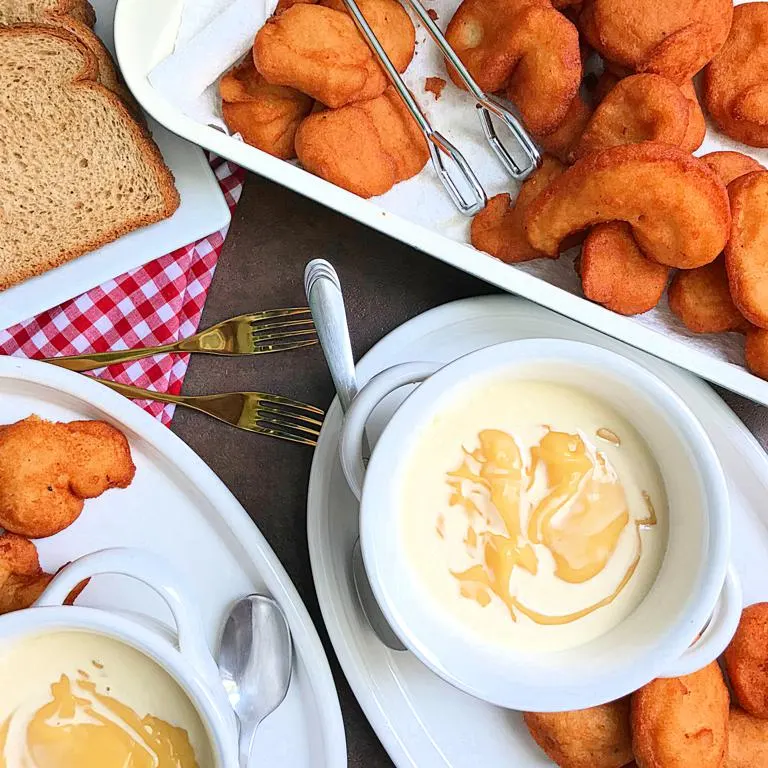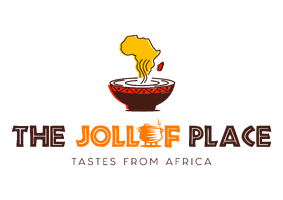For purchases outside of Almere click on NL Delivery Products on the website menu or shopping section
Akara and Pap
Akara and Pap: A Classic Nigerian Breakfast Combo You’ll Love
History and Origin
Akara and pap are a classic Nigerian breakfast combination deeply rooted in West African culinary traditions. Akara, also known as bean cakes or bean fritters, is made from ground peeled beans, primarily black-eyed peas or cowpeas, and is believed to have originated from the Yoruba people of southwestern Nigeria. The tradition of akara dates back centuries, commonly prepared and enjoyed during festivities, religious ceremonies, and even as street food. Pap, on the other hand, known locally as "ogi" by the Yorubas and "akamu" by the Igbos," is a fermented cereal pudding made from maize, millet, or sorghum. Pap has been a staple in many West African homes, not just as breakfast but also as a weaning food for babies. Together, akara and pap have stood the test of time as a nourishing and comforting meal.
Ingredients
For Akara:
- Peeled black-eyed peas (or brown beans)
- Onion (finely chopped)
- Fresh pepper (to taste, finely chopped)
- Salt (to taste)
- Vegetable oil (for frying)
For Pap:
- Fermented maize (or millet, sorghum) paste
- Water (as needed)
- Sugar or honey (optional)
- Milk (optional)
Preparation
Akara Preparation:
1. Soak the black-eyed peas in water for about 1 hour to soften the skin. Peel the beans by rubbing them between your hands and rinsing until most of the skins come off.
2. Blend the peeled beans with water to create a smooth paste.
3. Add finely chopped onions, pepper, and salt to the paste and mix thoroughly.
4. Heat vegetable oil in a deep frying pan over medium heat.
5. Scoop small portions of the bean mixture into the oil using a spoon and fry until golden brown on all sides.
6. Remove and place the akara on a paper towel to drain excess oil.
Pap Preparation:
1. Dissolve the fermented maize paste in a small amount of water to form a smooth, runny mixture.
2. Boil water in a pot and gradually pour the boiling water into the maize mixture, stirring continuously until the pap thickens.
3. Serve the pap hot, sweetened with sugar or honey, and optionally, add milk for a richer flavor.
Health Benefits
Akara and pap are not only delicious but also packed with nutrients. Akara is a great source of plant-based protein, dietary fiber, and essential vitamins like folate and iron. It is particularly beneficial for vegetarians and those seeking a hearty, nutritious meal. Pap is rich in carbohydrates, providing a good source of energy. It's also gluten-free and easily digestible, making it a gentle food for the stomach, especially when recovering from illness or feeding young children. The combination of protein from akara and the carbohydrates from pap makes this meal balanced and filling.
Pairings
While akara and pap are a perfect duo, you can elevate your meal by pairing them with other items. Akara can be enjoyed with bread for a filling sandwich. Pap can be paired with moin-moin (steamed bean pudding), eaten with fried yams or plantains for a more elaborate meal. You can also add a touch of spice with pepper sauce or a side of vegetables to enhance the flavors or even consumed on its own with a dash of milk or honey.
Conclusion
Akara and pap continue to be a cherished meal in Nigerian households, offering a perfect blend of flavor, nutrition, and tradition. Whether you're enjoying it as a quick breakfast or a more substantial meal, this timeless combination never fails to deliver warmth and satisfaction. So why not try making akara and pap today and bring a taste of Nigeria to your kitchen?

For a step-by-step video tutorial on how to make delicious akara and pap at home, visit the YouTube channel! and follow along with the easy guide.
Display prices in:EUR
